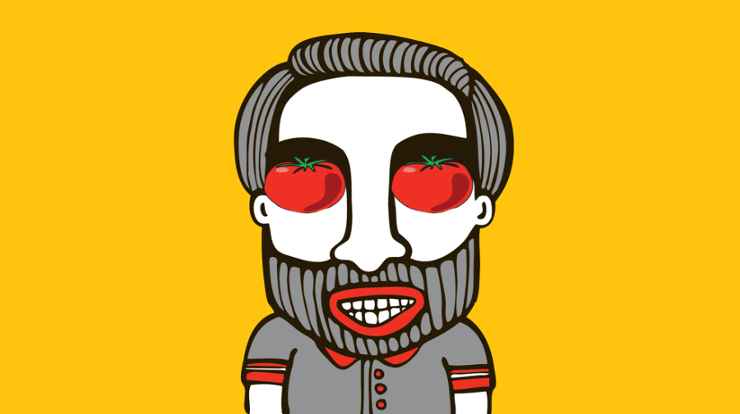Some years ago, a German friend – who speaks very good English – was visiting New Zealand and boarded a tour bus. The driver called, “How ya going?” to which she hesitantly replied, “By bus, I hope.”
Idioms are the bane of any foreign language learner. What would you say if a Swede told you, “There’s no cow on the ice,” a Portuguese person suggested you “pay the duck”, or a Japanese friend said they were “willing to borrow a cat’s paws”?
(In case you’re wondering, the Swede is telling you, “There’s no need to worry”, the Portuguese is saying you should take the blame for something even though you didn’t do it, and your Japanese friend is so busy they’re willing to take help from anyone.)
Volunteers on the Open Translation Project translate and subtitle the world famous TED talks into more than 100 different languages. When asked to share their favorite idioms and how they would translate literally, they came up with the following …
German: Tomaten auf den Augen haben.
Literal translation: “You have tomatoes on your eyes.”
What it means: “You are not seeing what everyone else can see.” (It refers to real objects, not abstract meanings.)
Swedish: Att glida in på en räkmacka
Literal translation: “To slide in on a shrimp sandwich.”
What it means: “It refers to somebody who didn’t have to work to get where they are.”
Thai: ไก่เห็นตีนงู งูเห็นนมไก่
Literal translation: “The hen sees the snake’s feet and the snake sees the hen’s boobs.”
What it means: “It means two people know each other’s secrets.”
Latvian: Ej bekot.
Literal translation: “Go pick mushrooms!”
What it means: “Go away and/or leave me alone.”
French: Se regarder en chiens de faïence.
Literal translation: “To look at each other like earthenware dogs.”
What it means: “Basically, to look at each other coldly, with distrust.”
Russian: Хоть кол на голове теши
Literal translation: “You can sharpen with an ax on top of this head.”
What it means: “He’s a very stubborn person.”
Portuguese: Quem não tem cão caça com gato
Literal translation: “He who doesn’t have a dog hunts with a cat.”
What it means: “Make the most of what you’ve got.”
Polish: Słoń nastąpił ci na ucho?
Literal translation: “Did an elephant stomp on your ear?”
What it means: “You have no ear for music.”
Japanese: 猫をかぶる
Literal translation: “To wear a cat on one’s head.”
What it means: “You’re hiding your claws and pretending to be a nice, harmless person.”
Croatian: Muda Labudova
Literal translation: “Balls of a swan.”
What it means: “It means something that’s impossible.”
Dutch: Iets met de Franse slag doen
Literal translation: “Doing something with the French whiplash.”
What it means: “This apparently comes from riding terminology. It means doing something hastily.”
Korean: 똥 묻은 개가 겨 묻은 개 나무란다
Literal translation: “A dog with feces scolds a dog with husks of grain.”
What it means: “It’s a bit like, ‘People who live in glass houses shouldn’t throw stones.’”
You’ll find a lot more here.

